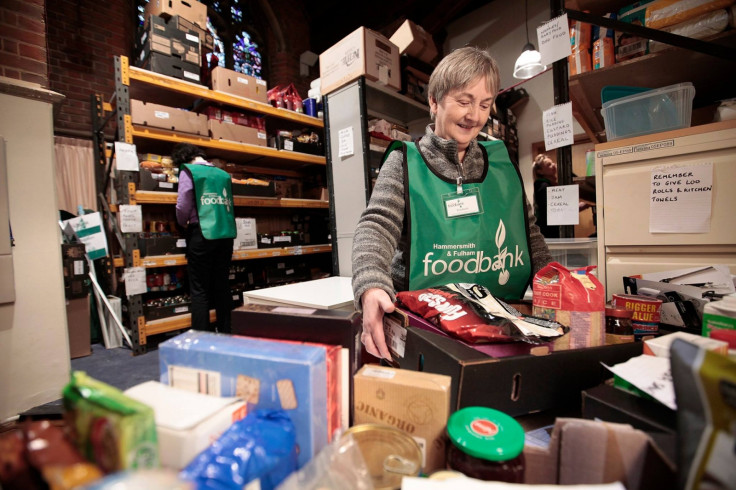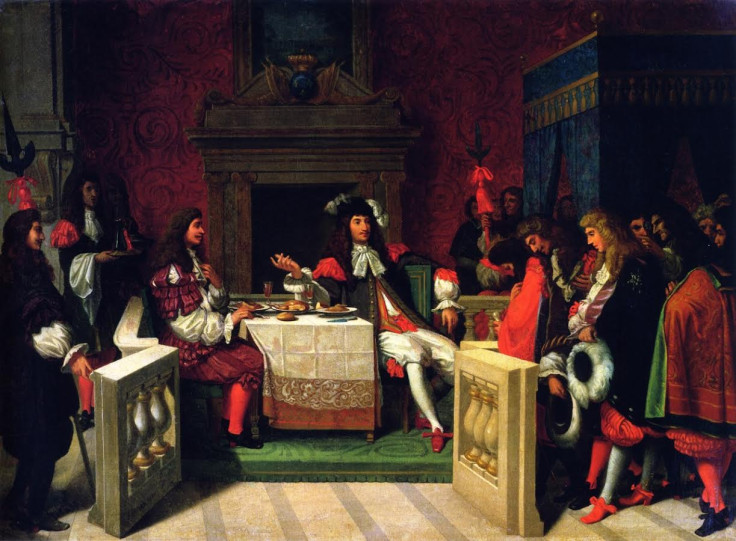The inconvenient truth about food banks: The rich are getting richer - and so are the poor
Food banks are becoming the go-to prop for people who lack actual statistics.

Most of us think of poverty as a lack of basic necessities: food, shelter, clothing. Poverty, in this sense, has pretty much been eliminated in the UK. There are, of course, rough estates in parts of our land – shockingly rough, given how wealthy Britain is overall – but they are nothing like the slums that social reformers wrote about in the 19th and early 20th centuries. A Briton on benefits today is better off, in absolute terms, than a Briton on average wages in the 1930s.
Go further back in time and our wealth becomes even more obvious. When you factor in clean water, central heating, vaccines and so on, the poorest of us is richer than the greatest aristocrat of an earlier epoch. Louis XIV was the most powerful man in the world in the seventeenth century. He had 40 dishes served to him each night on golden vessels, and would pick the one he fancied. Today, any shop assistant popping into a supermarket on her way home has a wider, fresher, healthier and more wholesome choice than had le Roi Soleil.
Ah, you might say, but being better off than Louis XIV is pretty meaningless. Expectations rise with standards. If you rent a tiny room and dress your kids in clothes from charity shops, it's no consolation to be told that you're less likely to die of infectious diseases than a seventeenth-century Bourbon monarch, or that you bathe more often, or that childbirth is safer. Poverty is relative as well as absolute.
Sure enough, most poverty lobbyists and charities define poverty as less than 60% of median income – a measure that brings anomalies of its own. Using this relative definition means that "poverty" can increase at a time when every citizen is becoming better off. It means that Britain has a higher "poverty" rate than Bangladesh.
Perhaps the most accurate way to gauge poverty is to take hard measures while acknowledging that the baseline is moving: not having indoor plumbing, say, is a bigger deal now than it was in the 1930s. We could, in other words, take account of relative poverty – relative to the changing sense of what are necessities, rather than to what others earn.
Here's the thing, though. However you measure poverty, whether in absolute or relative terms, it is decreasing. Sure, the decrease can be patchy. There are blips, occasional upticks, pockets of regional deprivation. There was a slight fall in absolute wealth after the recent crash – though it was accompanied, paradoxically, by a fall in "poverty" in the Oxfam/Rowntree sense of less than 60% of median income. Still, the long-term trend is undeniable. We're all getting better off, not least those at the bottom of the income scale.
Over the past 40 years, average hourly wages for the poorest decile have risen, at today's prices, from £3.40 to £6.70. While only 2% of full-time workers earned the minimum wage of £6.19 in 2013, fully 45% of full-time workers in 1975 earned less than £6.19 in 2013 prices.

The rich are getting richer and the poor are getting richer – an inconvenient finding for those who are determined to see injustice everywhere. Hence the absurd "measure" of poverty that has crept, first, into Labour Party discourse, and now into television reporting – namely the rise in food bank use. On Sunday, Andrew Marr put it to Theresa May that she was impoverishing NHS staff. He did this, not by pointing to any reduction in the NHS budget (there has been none), but to reports that some nurses were using food banks.
Food banks are becoming the go-to prop for people who lack actual statistics. Poverty is falling by any absolute or relative measure? "Yeah, well how come more people are using food banks?"
Because, obviously, food banks are a new phenomenon. They are a wonderful initiative, run by good and generous people. And they did not exist 20 years ago. In 2004, the Trussell Trust, which operates Britain's national foodbank network, was running just two centres.
But, if you're determined to point to rising penury, and can find no other data to sustain your hunch, you'll jab at whatever you can. "Food bank use is at record level!" Yes. So is smartphone use, and for the same reason: neither existed 20 years ago. Innovations spread.
What the poverty debate shows us is that, in one sense, poverty is indeed permanent. Although we might have an idea of what would count as an adequate living standard, future generations will snort incredulously at it, just as ours does at past definitions.
"Ye have the poor always with you," Jesus told his disciples. As long as poverty is reckoned in partly relative terms, this will by definition be true. Take a moment, though, to think about the things we take for granted: not just Netflix and cheap flights, but the increases in leisure, literacy and longevity. There has never been a better time to be alive.
Daniel Hannan has been Conservative MEP for the South East of England since 1999, and is Secretary-General of the Alliance of European Conservatives and Reformists. Follow : @danieljhannan
© Copyright IBTimes 2025. All rights reserved.






















